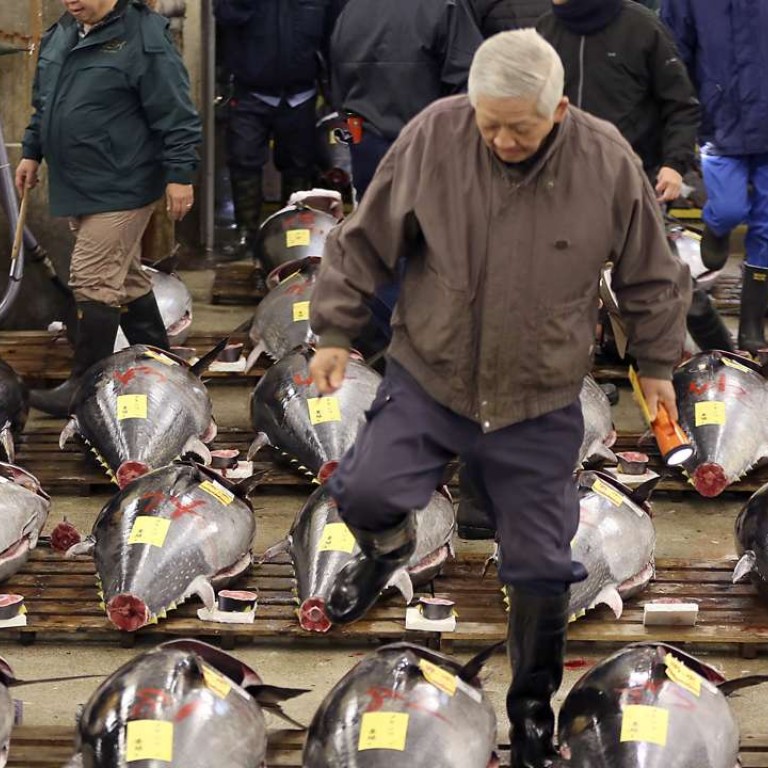
Customers confused about botched relocation plan for Tokyo’s famed Tsukiji fish market
Further delay could also affect preparations for hosting the 2020 Tokyo Olympics and Paralympics
Market traders and restaurant operators who rely on fresh seafood from Tokyo’s famous Tsukiji fish market “are at a complete loss” over the admission by the city government that work to ensure the site for the new market is not contaminated with pollutants, was botched.
The new Toyosu market, which is also scheduled to handle millions of tonnes of fresh fruit and vegetables, was due to open on November 7 to take over the business presently conducted at Tsukiji.
The further delay could affect preparations for hosting the 2020 Tokyo Olympics and Paralympics. A highway is planned to pass through the vacated Tsukiji site to connect the central area of Tokyo to the main games venues concentrated in the waterfront area.

I was at the [Tsukiji] market this morning, buying fish for the restaurant, and everyone was asking everyone else what was going on
The 40-hectare site was previously occupied by a plant operated by Tokyo Gas Co., and an initial environmental survey in 2008 found high levels of a number of dangerous chemicals in the soil. Benzene levels alone were 43,000 times the permitted legal levels.
Experts called for all soil to a depth of two metres to be removed and that 4.5 metres of clean soil be laid as a layer across the entire site. A total of Y85 billion (HK$6.44 billion) was earmarked for this part of the larger project alone.
A subsequent investigation has confirmed, however, that the work was not carried out beneath a number of the structures that have now been built on the site, including one building that will store wholesalers’ supplies.

The two other buildings affected are the auctions for fish and seafood will be held and the area for the sale of vegetables and fruit.
“I was at the market this morning, buying fish for the restaurant, and everyone was asking everyone else what was going on,” Andy Lunt, owner of the Shin-Hinomoto restaurant in the Yurakucho district of Tokyo, told South China Morning Post.
“All the dealers there have known for years that there was pollution in the soil, but everyone presumed that the reason the work was taking so long and costing so much money was because they were doing a really thorough job of cleaning it all up.

Governor Koike has ordered a new survey of groundwater at the site, a process that is expected to take until January.
“It is a market that handles fresh food and seafood,” Koike, a former national environment minister said Saturday. “The perspective of consumers about food safety is valuable, and I believe that citizens come first.”
Tsukiji, which has served as the market for Tokyo and the Kanto region for nearly 80 years, occupies 57 acres of prime waterfront real estate and is likely to be snapped up by developers as soon as the move to the new market can be completed.
Additional reporting by Kyodo

